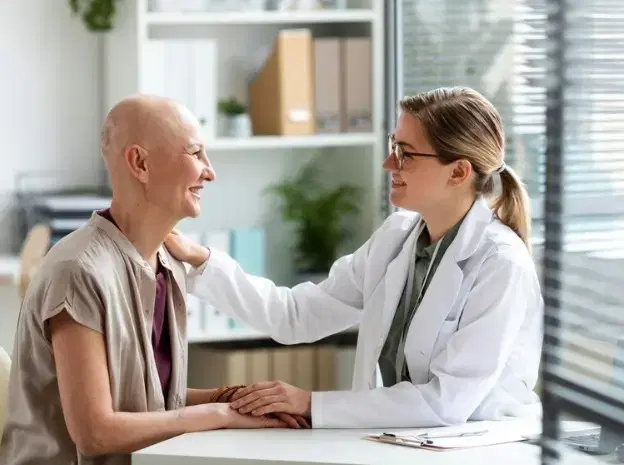
Comprehensive Cancer Screening: Early Detection Saves Lives
Did you know that the 5-year survival rate for breast cancer detected early is about 99% compared to just 27% for late-stage detection? These numbers are not just statistics; they represent lives saved or lost, and they highlight a crucial point: early detection of cancer can significantly increase the chances of successful treatment. In India, where the cancer burden is steadily rising, understanding and participating in regular cancer screening is more important than ever.
Importance of Early Detection
Survival Rates
Early detection is like catching a fire before it spreads—it drastically improves the chances of survival. For instance, the survival rates for many cancers, including breast, cervical, colorectal, and oral cancers, are significantly higher when the disease is caught in its early stages. In India, where healthcare accessibility can be a challenge, this early detection could be the difference between life and death.
Reduced Treatment Costs
Besides saving lives, early cancer detection can also save money. Treating cancer in its early stages is generally less complex, requires fewer medical interventions, and is less expensive than treating advanced cancer. For many families in India, where out-of-pocket medical expenses can be overwhelming, early detection can reduce the financial burden.
Understanding the Cancer Burden in India
Incidence and Lifetime Risk
India is facing a growing cancer crisis. In 2022, there were approximately 1.46 million new cancer cases, with a crude incidence rate of 100.4 per 100,000 individuals. These numbers are more than just statistics; they reflect the reality that nearly one in nine Indians will face a cancer diagnosis during their lifetime. This is why widespread awareness and participation in cancer screening programs are critical.
Common Types of Cancer in India
Certain types of cancer are more prevalent in India. Lung cancer is the most common among males, while breast cancer is the leading cancer among females. This emphasizes the need for targeted screenings, such as mammograms for breast cancer and low-dose CT scans for lung cancer, particularly for high-risk populations.
Types of Cancer Screening
Breast Cancer Screening
For women aged 40 and above, mammography is the gold standard for early detection of breast cancer. In addition, clinical breast exams and self-exams play a vital role in catching abnormalities early. Regular screening can lead to early intervention, significantly improving survival rates.
Cervical Cancer Screening
Cervical cancer remains a major health threat to women in India. Pap smears and HPV testing are recommended for women aged 21 to 65. These screenings can detect precancerous changes in the cervix, allowing for early treatment and preventing the development of cancer.
Colorectal Cancer Screening
For individuals aged 50 and above, colorectal cancer screening is essential. Colonoscopies and faecal occult blood tests are the primary tools used to detect colorectal cancer early. Gastroenterologists, such as those at Bangalore Gastro Centre, often perform colonoscopies, making it crucial for at-risk individuals to consult with specialists for timely screening.
Oral Cancer Screening
Oral cancer is particularly prevalent in India due to the widespread use of tobacco. Regular oral exams are essential, especially for those with a history of tobacco use. Early detection through these exams can lead to more successful treatment outcomes. Gastroenterologists can also assist in diagnosing and managing oral and gastrointestinal cancers, highlighting the importance of consulting with specialists for comprehensive care.
National Cancer Control Programme
The Indian government has recognized the growing cancer burden and has implemented the National Cancer Control Programme. This initiative focuses on cancer prevention, early detection, and treatment, aiming to reduce the incidence and mortality associated with cancer in India.
Challenges and Considerations
Awareness and Accessibility
Despite the importance of early detection, lack of awareness and limited access to screening facilities remain significant barriers in India. Many people, especially in rural areas, are unaware of the available screening options or cannot access them due to distance or cost. Increasing awareness and making screenings more accessible are critical steps in improving cancer outcomes.
Cost and Infrastructure
The high cost of cancer treatment and inadequate healthcare infrastructure further hinder widespread screening efforts. While urban areas may have better access to screening facilities, rural regions often lack the necessary infrastructure. Addressing these challenges requires concerted efforts from the government, healthcare providers, and the community.
Read more: Understanding Eosinophilic Esophagitis: Symptoms, Diagnosis, and Treatment Options
Taking Action: Your Health Matters
Personal Responsibility
Your health is in your hands. Regular screenings based on your age and risk factors are essential in detecting cancer early. Don’t wait until it’s too late—schedule your screenings, talk to your healthcare provider, and take charge of your health.
Consulting with Specialists
It’s crucial to consult healthcare providers, such as gastroenterologists, for relevant screenings. Specialists can guide you through the appropriate screenings and help you understand your risks, ensuring that you take the necessary steps to protect your health.
Early detection through regular cancer screenings can save lives and reduce the financial burden of treatment. By staying informed and proactive, you can make a significant difference in your health and well-being. Share this information with your loved ones, and consider discussing cancer screening options with your healthcare provider. Remember, when it comes to cancer, early detection truly saves lives.
